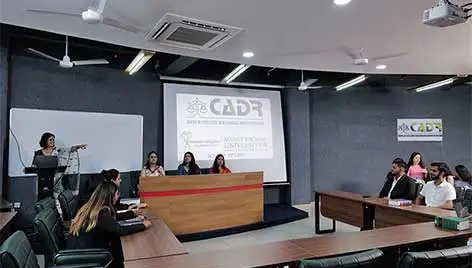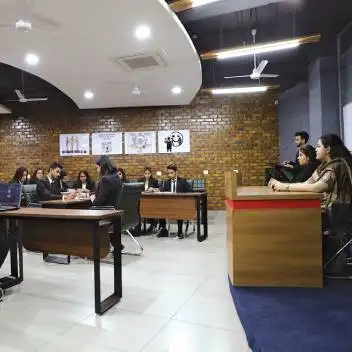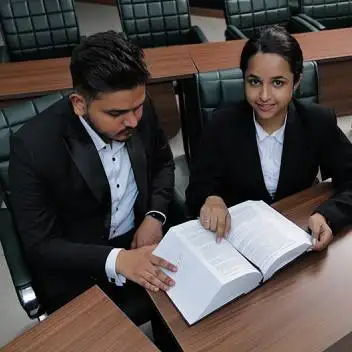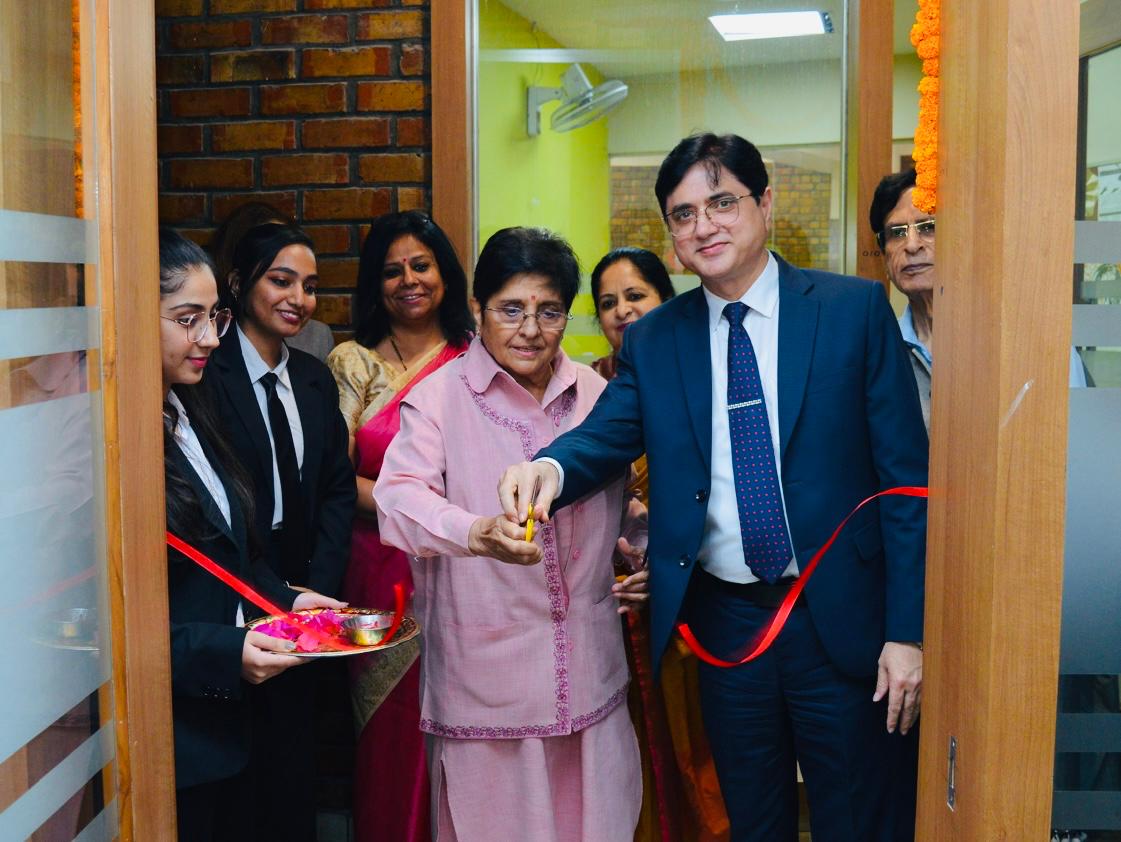Centre For Alternative Dispute Resolution
Overview
The Centre of Excellence on Alternative Dispute Resolution, namely “CADR” is a functional unit under the overall aegis of School of Law, MRU. The Centre is established with a purpose of conducting and promoting research and generating and disseminating knowledge in the field of alternative dispute resolution mechanisms.
The Centre of Excellence is committed to advance the objectives for which it is constituted, in the interest of the University and requirements of the legal system of the country.
Purpose
The Centre of Excellence namely “Centre for Alternative Dispute Resolution” is established with following objectives–
- To pursue research and publications in the field of ADR;
- To undertake consultancy, advisory and advocacy projects;
- To train, develop and cultivate a core group of ADR experts in India, capable of employing alternative resolution mechanisms, to the disputes of national and international nature;
- To provide an effective forum for the exchange and analysis of ideas and information between industry, professionals, trade associations, government agencies, and academia;
- To support the academic pursuits of the Faculty of Law, with research and practical training;
- To explore and enter into collaborations and tie-ups with national and international organizations and agencies, such as the International Court of Arbitration as part of ICC, Paris, SIAC, SIMC KDLC, to name but few, in furtherance of the objectives of the Centre.
Collaboration Opportunities
CADR is constantly exploring collaborations and tie ups with national and international organizations and agencies, such as International Court of Arbitration as part of ICC, Paris, SIAC, SIMC KDLC, to name but few, in furtherance of the objectives of the Centre.
Student Involvement
The Centre of Excellence in Alternative Dispute Resolution also engages full/part time interns on a rolling basis to assist with the activities of the Centre. Students of the 4th and 5th year, in a 5-year program, and students of the 2nd and 3rd year in a 3-year law program are eligible to apply for the internship. All Applicants are required to apply at-least two months prior to the proposed starting date of internship.






